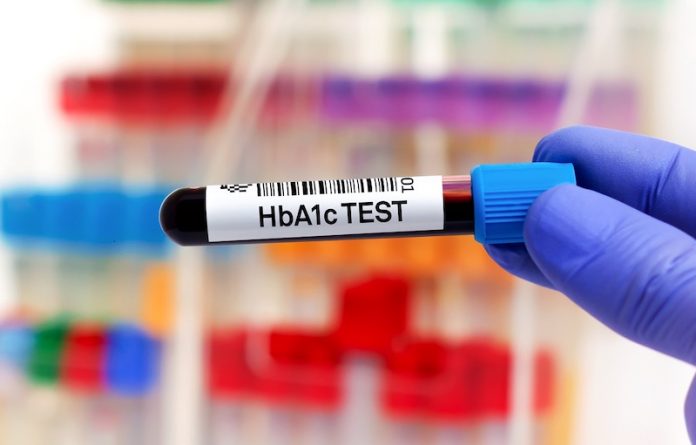
The math might seem simple. Foods high in cholesterol plus no exercise equals heart trouble.
But as it turns out, high levels of low-density lipoprotein (LDL) cholesterol (the variety they call “bad”) isn’t the only diet-driven culprit behind perils like stroke and cardiac failure.
Sugar is just as bad for your heart as cholesterol – if not worse, says Dr. Daniel Lodge, a thoracic surgeon at Penn State Health Specialty Services in Reading.
“Diabetes is a much bigger risk factor,” he said. About 11% of people in the U.S. have diabetes, but roughly 30% of people with heart disease have the blood sugar illness, Lodge said.
Below he talks about the link between the sugar coursing through your veins and heart disease ― and how a simple test can make all the difference.
What exactly is A1C?
Your body converts carbohydrates into sugar, which is eventually absorbed and used as energy or stored fat.
“Sugar binds to red blood cells and hemoglobin A1C is the amount of sugar bonded to the red blood cells. It measures average blood sugar over the past three months,” Lodge said.
But what does high hemoglobin A1C have to do with cardiovascular disease?
“High blood sugar damages blood vessels over time, causing them to harden and become blocked,” Lodge said.
That’s why diabetes is a major risk factor for cardiovascular events like heart attack, stroke and heart failure. In fact, cardiovascular disease is among the most common causes of death among diabetics.
Aside from diabetes, do you experience any symptoms if your a1c levels are too high or too low?
As it turns out, there are no symptoms. That’s why testing is so crucial, Lodge says.
“Every adult over 45 ― or under 45 with risk factors ― should be checked every three years, even with previous normal results,” he said.
“Risk factors include being overweight, physically active less than three times a week, pre-diabetes, gestational diabetes, or you have a parent, brother or sister with Type 2 diabetes.”
Your doctor performs the test, and you don’t have to do anything special to prepare for it. You can add it to any regular bloodwork you’re already getting.
What should my A1C level be?
An A1C level below 5.7% is considered normal, according to the U.S. Centers for Disease Control and Prevention.
If your doctor finds a level of 5.7% to 6.4%, it’s a condition called prediabetes ― so you have a greater risk for developing the Type 2 version of the diseases.
Someone with diabetes has an A1C level of 6.5% or more. If you’re diabetic, the goal for most people is to keep their A1C level at 7%.
How do I prevent it from becoming a problem?
Lodge suggests keeping track of your diet, avoiding sugar and carbohydrates in particular. Weight loss can help lower A1C. And any kind of exercise – resistance training, cardio – helps, too.
Do any medications regulate A1c levels?
A wide variety of medicines help lower A1C, with varying side effects and ease of administration. A new variety called SGLT2 inhibitors lower blood sugar and A1C and cause weight loss as a side effect.
So the side effect also helps decrease cardiovascular events like heart attack, stroke and heart failure ― even in people who don’t have diabetes.
If you care about heart health, please read studies about how drinking milk affects risks of heart disease , and herbal supplements could harm your heart rhythm.
For more information about health, please see recent studies that vaccines may increase heart disease risk, and results showing how Mediterranean diet could protect your brain health.



